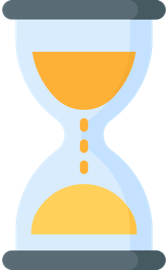Community > Posts By > MultipleDichotomies
|
Topic:
Let's Debate Progress
|
|
|
I've wanted that also, but not sure if it is even possible. Of course if the grid crashes, then we have little choice. I would love to be able to afford a completely green house powered by its own wind electricity, grow my own food etc. I would love to have an indoor garden I could grow all year round. I would love to live in a cave that did not require heat and cooling systems. I don't know if I have the energy for that, or the money. It seems impractical at this point. We could learn a lot from the Amish. 
Well, I am worrying about the grid crashing, so I'm planning for that and it seems like a worthwhile investment to me, moreso than a new vehicle or nicer clothes. I have a strategy that starts with acquiring land away from higher real estate taxes, meaning I'd need to be retired so I could be that remote from established infrastructure. I've been involved in the construction industry for 25 years now, so I have insights to building not readily available to everyone, so the prospect of building a subterranean home out of concrete with solar and wind energy being captured is not only possible, but within my budget, as I can do most work myself or enlist friends and family to help for substantial savings. A lot of the training I had to take for LEED certification has put me in contact with materials and suppliers that are not mainstream just yet, but may very well be common in ten years. I can only hope so. The Amish have two communities near where I live, so not only is their example familiar to me, but some of the industries that serve them are common, as well. You'd be amazed at how advanced home appliances that don't require electricity can be. |
|
|
|
|
|
Topic:
Let's Debate Progress
|
|
|
MD, I respect where you're coming from, but have you ever tried to grow any sizable amount of your own food? It is a lot of work, and it ties you down. I'm not convinced that the "average American homeowner" does have adequate space to grow ALL their own food. Plus you have to consider the quality of the soil and the amount/direction of the sun. I lived in a place that had plenty of room for a full garden but got practically no sun at all, and there wasn't a thing I could do about it. And of course, where does all that leave nonhomeowners? Not to mention having to start all over when you move. Not to mention inhospitable climates. I like lots of things that won't grow in my area.
I do think people could do a lot more for themselves, and the food of course tastes much better when you grow it yourself. But gardening really is an art that not everyone is good at. I grew up on a small farm in the Midwest, so I was raised on the idea that gardens are not just simple, but essential. My family and neighbors would have thought someone without a garden was unusual. Granted, our neighbors had a superior sweet corn field, so we bartered tomatoes with them. My point is, if we, as a society, valued home grown food, wouldn't we see value in teaching that skill and making it readily available? I'm willing to join with the other individual raindrops in trying to create a new pond. I'm a big fan of solar energy. My understanding is that the reason it hasn't become more widespread is that the initial investment is pretty big. I built a passive solar house for myself, but not active solar because I couldn't afford the panels; plus I don't believe they would have collected all the energy I needed. I think wind may be a better solution, or a combination of the two.
The initial investment is three times less than it used to be: http://www.gizmag.com/cuess-solar-panel-photovoltaic/14507/ That site is the source of a lot of my information: http://www.gizmag.com/ecogizmo/ but I have many more. I read these articles, and wonder why I don't see the information transformed into merchandise readily available at my favorite home improvement store. I can buy everything else I need to build a house with there; why not solar panels? I don't know who you're talking to that ridicules vegetarians. It seems like every third person I know looks down on me for eating meat and, God forbid, LIKING it. Humans evolved to be omnivores, not vegetarians. But I agree that most people eat way too little greenery. I see a lot of backlash towards vegetarians, primarily because the most vocal espouse that holier than thou attitude you mention. Pop culture (Family Guy, Simpsons, How I Met Your Mother) have portrayed vegetarians as pretentious and "high maintenance", and the popular cooking shows often incorporate a vegan as a "challenge" to the menu. Commercials for "manly" foods often emphasis meat. I know that when my friends notice I'm eating primarily vegetables and not ordering steak, they're going to speak up, and I'm going to take some good-natured ribbing about it. Folks in my area are hunters and raise cattle; people who don't eat meat are typically their political opponents. Insurance . . . you go right from that to basically dismissing the credit society. I tend to agree, but they're not the same thing. I do LOATHE insurance companies but think they are necessary to a certain extent (just not in healthcare!). It's not realistic for people in our society to only own what they can pay cash for. Hardly anyone would have a car, and certainly not a house, if that were so. Of course, if you're talking 48-inch screen TVs, especially three of them per household, that's a different story. Well, the large TVs are a separate issue, based on a study of the lifestyles (and learning methods) of lower, middle and upper class. The lower income classes tend to value entertainment over all else (because, in their experience, nothing good lasts very long for them) so, the TV is highly sought after while maintaining a home and eating healthy are of lower value. I see the problem of over insuring being directly tied to our credit society, though, but I can see where I need to make that link. It wasn't until we could borrow significant sums of money that we started to attain items that were now too expensive to lose, thus necessitating insurance. The insurance industry became the mega-financial empire it is today after credit became readily available to a larger segment of the population. Prior to the 1950s, insurance was a newsworthy item: an actress who insured her legs for $1 million (Betty Grable) for instance. Today, you cannot conceivably own a home or an automobile without carrying insurance on them. Most Americans would also advocate that living without health insurance is risky and very stressful and that politicians need to do something about making health insurance attainable for every American citizen. I'd add a fourth, life insurance, to the list for those who can afford it. That's four insurance policies that impact your budget. Why do they cost so much? Put simply, because insurance companies refuse to lose money, so when they get sued, they pass the loss onto their customers, and we all know how much we like to sue in America. Rather than betting against the house (a losing prospect; they don't build those shiny casinos from their losses) by giving your money to a insurance company that is sure to make a profit, why don't we create a tax-deferred 401k type of account where we deposit premiums until a minimum is met, allow the pool of money to earn interest through very conservative investment, and allow people to draw on it when they have a loss (or pay tax penalties otherwise). If they never use it? They keep the money, and it becomes their retirement. Now we've created a system that rewards people for driving carefully, taking good care of their home, promotes fire safety and fosters a long-term reward system of saving money. Would you agree that keeping that money in the hands of the citizens, versus the vaults of insurance companies, is better for the economy? Would their still be frivolous lawsuits, if the rewards were much smaller, and more likely to be paid by an individual, instead of a faceless giant corporation? If everyone viewed insurance as something they were hoping to keep into their retirement years, would juries be so quick to award huge settlements? If the lawsuits became less lucrative, would the cost of materials decrease, health care, construction, etcetera? As a construction industry member, I can tell you, insurance costs are a major part of our business. If I could remove one thing from our current society, it would be advertising. I'd like to erase the entire concept from the human brain. That's the one thing that I think has led us over the cliff. Agreed...commercials create this sense that we must have things, we must consume, we must replace, we must update, or we're left behind, we're not part of the society we thought we belonged to, because all of our friends and neighbors are buying the next great thing. |
|
|
|
|
|
Topic:
Let's Debate Progress
|
|
|
Well, Jeanniebean, while I like the idea that we have much better methods of communicating today, it seems like ease of communication has created a drop in quality of communication and created unreasonable expectations, like you've touched on.
To a mother that railed at a school board because her child's phone was taken away, worried that "what if there was an emergency?" I asked, what if that emergency had occurred five years ago? What did your parents do when there was an emergency? If there is an emergency, should your child be focused on talking to you, or listening to those responsible provide directions? I still consider the mobile phone a luxury, not a right. I very much enjoy that luxury when my kids call to just say hello, and to share some tiny tidbit from their day. It makes the phone worth the price, but it doesn't mean I can't live without it. Those sensors are for hands-free use, once thought to promote less transmitting of bacteria, but have recently been shown to actually harbor bacteria because the valve aperture is much smaller than on a manually operated mechanism, creating pockets where bacteria are allowed to thrive. There is a simple joy in creating with your hands that has been forgotten. Making something from scratch is wonderful stress relief, and I find my kids enjoy it so much more than anything I could buy them. Concocting your own recipes can also be very rewarding, and I wish for everyone to have that experience, as often as possible. I'm looking forward to living off of the grid, growing my own food, not receiving monthly bills for so many services I can provide myself. |
|
|
|
|
|
Topic:
is it wrong?
|
|
|
I like to play my own Devil's Advocate on these types of questions, by asking myself:
1) What is the worst that could happen? (Husband has an ulterior motive, leads to bad breakup / divorce) 2) What is the best thing that could happen? (Have a long-term committed relationship with both husband and gf; deal with societal implications, wills, visiting rights, etcetera. Marriage for same sex couples is contentious, what would a three-person arrangement be like?) 3) Then, the twist: What if the husband and gf were completely cool with the arrangement, but you discovered you liked her significantly more; what happens to your husband's needs, do you stay married, etcetera. I've said it before in the forums: I have a strong tendency to over thinking things and quite possibly miss out on opportunities because I'm too busy weighing pros and cons, so take my ideas with a grain of salt. |
|
|
|
|
|
I suppose people will get married a second time because they think next time it will work. People do the same with relationships even when they have bad experiences. I won't have a relationship for the same reason you folks won't marry again. I don't want to go through another bad experience. So...you're just using me for entertainment value????   
|
|
|
|
|
|
living without taking risk is just existing
many things I havent gotten right the very first time, that I have tried again fear of failure doesnt have to stop us in our tracks,,, My thoughts, as well, and with another poster, I say, I'm either in all the way or not at all. There is a directly proportionate ratio of risk to reward: the less you're willing to risk, the lower your reward. When it comes to love, I'm all in, because I'd rather love to the fullest for a while than loved only a little for a long time. |
|
|
|
|
|
Topic:
Not since Caligula
|
|
|
Zionism – a failed enterprise So, rather than enter an endless and futile debate here, I propose that we should begin from a point at which we all agree: I presume that we all accept that Israel is currently one state but is dominated politically and spiritually by an ethnocentric discriminatory political system. If you mean, Israel is surrounded by people who hate them and want to kill them for no other reason than because they listen to a different magical, invisible being, then yes, we'll agree. |
|
|
|
|
|
Topic:
Let's Debate Progress
|
|
|
I think technology is advancing faster than people. There are a few very smart people and then there is the general population. (Like me) who don't even like trying to learn how to operate a cell phone and don't want to learn to program a VCR. I just want a regular desk phone please. And flush toilets with handles. Geeeze. 
The humble toilet has come quite a ways, too, and not just those sensing valves that are supposed to flush for you but malfunction all too easily. Today you can buy a toilet that never clogs, uses little to no water, and does not require a connection to a sewer system. It's called a composting toilet. My grandfather called it an outhouse. Same concept, only now they'll manufacture it for you and charge you an exorbitant price because it's "green". Which is sort of my point...what we used to do out of necessity, we now have science confirming that it was a more sustainable way of living. Technology is starting to come full circle, acknowledging that the cave is the most efficient living model, that your body is not designed to consume processed foods, that our sleep cycles should not follow electric lighting and that there is abundant energy in wind and sun. My biggest bias is that I do not like to work. I know, I know, that's why they pay me, and honestly, I do love what I do for a living, but I'm constantly aware of how much of my day is consumed by processes that are completely unrelated to the product produced. Very little of my day is spent on activity related to my survival. I don't grow food, perform maintenance on my shelter or produce clothing. My Maslow's needs are met mostly on my own time; my work life produces numbers on a piece of paper that I then exchange for the items that eventually meet my needs. I'm arguing that the majority of my time is not spent in direct relationship to my needs, and that we've developed far too many processes that technology was supposed to eliminate. The ads in the 50s and 60s were always touting how this new appliance was going to free up time and make life easier; you see that now in terms of productivity at work, less about having more free time at home, but the truth is, technology today only makes it possible for us to work more often, for longer hours, instead of truly simplifying our lives. Computers were supposed to replace entire floors of typing pools, leading to greater productivity...so what happened to that productivity? Why am I working more hours today than the typists of decades ago that were replaced? |
|
|
|
|
|
Topic:
Let's Debate Progress
|
|
|
My opinion is that in the broad view, we are making advances, period. The advances may not be in the majority, but by definition, if we are not standing still or moving backward, then we are advancing.
I do not believe we are advancing in the proper direction, or at the speed, with which we are capable of making. In that sense, I think we're being kept busy, like the hamster wheel example. I look back on how long, as an American, I've known about solar energy. We created simple experiments in grade school that proved the concept. Yet, here I am in my forties, and solar energy still seems to be some kind of exotic concept, not a very real and obtainable science. Solar panels are cheaper to produce now than ever before (I have links, if anyone cares to follow up) and their output is even three times greater than what was traditionally accepted. The average American homeowner has enough space on their roof to not only generate enough electricity to power a fully electric home, but actually produces excess (such a house has been built) that would be sold back to the utility companies. Think of the freedom you'd have if your electricity was abundant and free. The average American homeowner also possesses enough yard space to grow all of their own food. The vegetarian diet is often ridiculed, with vegetarians being ostracized as extremist, irritating and unrealistic...yet, 23 years of incredibly accurate scientific data confirms that a plant based diet can not only prevent most major chronic illnesses and disease (such as heart disease and CANCER) but it can actually STOP the progression of those diseases. Yeah, I know, you read it, I read it, still hard to believe, but the proof is there (it's called The China Study, by Colin Campbell, PhD). Cancer actually stopped, 100% of the time, by a plant based diet. Insurance. The practice of betting your money against an established firm who hires the best mathematicians in the country to calculate odds in their favor to protect you from negative consequences. Think on that...if you could only buy what you could pay cash for, and only owned possessions that you could afford to replace...and your health was good (see above), then what would you need insurance for? What if everyone held a savings account, tax deferred, that acted as self-insurance? When you sued someone, you'd literally be suing them, not some big insurance company. Now...if your energy was free, your food was grown by you, your health was very good and you didn't need to pay insurance premiums...how long would you have to work? How much free time would you have, if you only had to work one day a week to meet your income needs? What would happen if you had all that spare time? Would you pay more attention to what politicians were doing? Would you be more involved in politics? Are we being kept busy, or are our daily lives what they are by true necessity? |
|
|
|
|
|
Topic:
Let's Debate Progress
|
|
|
I'd like to discuss where other Mingle users see us, the human race, in terms of progress.
Are we moving forward, meaning we are advancing technology that increases our quality of life and increasing our life span? Do we define "advancing" as technology that increases quality of life and increases our life span, or can technology still be considered an advance if it promotes some other objective? If we are not moving forward, are we just spinning like hamsters on a wheel? |
|
|
|
|
|
Topic:
Not since Caligula
|
|
|
Islam rejects any and all claims of any other group, period. Peace amongst Islam is temporary, at best. Even in wholly Muslim states, different sects hunt each other to extinction.
As an American, I continue to vote for my country to support Israel, who has shown they are capable of peace, for Palestine will never be satisfied, no matter what they are given. |
|
|
|
|
|
I've been chatting on the internet for...geesh...fifteen years? All the way back to the usenet days. I've made a lot of strong acquaintances that way, and even met a few in real life. Among those I've met in real life, I'd say one in ten were fakes. I think they just wanted to present a better version of themselves than what was true. A lot of my online friends - all of them female - were taken by someone we all thought we knew, entirely based on their online presence. I've learned a lot from that.
I prefer to relegate my monkey-sphere abilities to those in meatspace, but I think the internet is a great ice breaker. It is an excellent method of communicating, and a fairly safe way to exchange information. It allows for the basic introduction to be made, but that is about it. It's like looking for a house; how many times did a house look great online, only to find out in 3D it is not at all what you expected? I actually ended up buying a house that was on the bottom of my list, based on online pictures and "tours", because when I physically saw the actual house, the floor plan made sense and the house was wonderful. |
|
|
|
|
|
Topic:
Do we know the real you?
|
|
|
I'm much more composed here, and online in general. In meatspace, I wear my emotions on the outside and don't always think carefully before I speak.
I'm even different from work than I am with friends, or at home. At work, I'm hard driven and professional, very detail oriented and uncompromising. At home, I'm very laid back and casual. On an up day, I'm quick-witted and "intense". On a down day, I'm reticent and surly. |
|
|
|
|
|
Topic:
Love in a slow cooker
|
|
|
I like the analogy of the slow cooker, and I agree with the chorus here, definitely the better scenario.
It's that slow and steady kind of falling in love that teaches us to overlook preferences like hair color, height and weight. There's nothing wrong with narrowing the field when meeting someone "cold" like online dating...but if we have the opportunity to share time with a person and get to know them, we may find that what we thought would not work becomes the most natural thing in the world. |
|
|
|
|
|
Topic:
A BETTER YOU
|
|
|
I'm reading "The China Study", by Colin Campbell, and it has really convinced me to change my diet. Hopefully I'll reap the health benefits they've shown in 23 years of studying diets and nutrition in different parts of the world.
I also have a lot of baggage that needs sorted and left where it belongs. I have been waiting for the VA to recognize my claim, but I'm losing in faith in any part of that system being able to help me even if they do, so I may have to seek some help on my own. I'd like a little more peace and quiet in my own head. |
|
|
|
|
|
What's going to be in the spoons? Are we flipping them or throwing them? I'll need to practice. Actually, my cat has reminded me of just HOW miserable she can make my life if a dog should show up in HER territory. It's not much different for dogs. I rescued a kitten just a couple of months ago, and Dinky gives me the most pathetic looks if I pet that kitty. Then she promptly wriggles into the lap space the kitty was in. |
|
|
|
|
|
Topic:
Lies and Love
|
|
|
Damn; you see right through me. Here I thought I was being so coy and had you fooled. 
I KNEW IT!! You...you sly vixen, you! You've been very bad! NOW...GO TO MY ROOM!    
WHAT?? How many times are you going to send me to your room? 
How many times will it take?   
|
|
|
|
|
|
Topic:
Lies and Love
|
|
|
Its 2012 know why are guys lieing to this women for, It don't make inning sense that you can tell some body that you love them but all you looking for this a ****. Everyone in a relationship lies; its what keeps relationships together. Exactly; it's just like the way navygirl denies that she's continuously coming on to me, staring at me with those alluring eyes, teasing me with those costumes from my favorite fandoms, telling me stories of how we could dance for hours, cheek to chest... It's not nice of her to play with my heart like that. We simply live too far away, and she knows it. I think I'm like a toy to her, something to do when she gets bored... Damn; you see right through me. Here I thought I was being so coy and had you fooled. 
I KNEW IT!! You...you sly vixen, you! You've been very bad! NOW...GO TO MY ROOM!    
|
|
|
|
|
|
Topic:
What If?
|
|
|
None of this applies to me. I'm a terrible liar and I live in my feelings. I always thought I was a gifted liar, but I have been disabused of that notion too many times. Nearly everyone that knows me at all can read my expressions and body language entirely too easily. I've tried to cultivate a better "poker face" for business dealings, but the majority of the clients I work with tell me they prefer my bluntness. I also find that being honest and direct saves a hell of a lot of time. |
|
|
|
|
|
What kind of drama? Baby Mama drama Can't find the right job drama Mom's kickin' me out drama Wow...no wonder you're frustrated. I wouldn't call the above "drama", I'd call them "Okay, thanks, bye!". |
|
|
|
|






